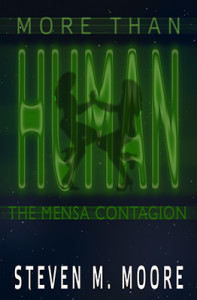Undeserved preference…
Note from Steve: How could I forget? October is a busy holiday month—Columbus Day aka Native Americans’ Day and Hallowed Eve (watch for those kiddies, whatever day your town celebrates it!). But the whole month is Hispanic Heritage Month. I was once so immersed in Hispanic culture (in Colombia) that I dreamed in Spanish even when I returned to the States. Of course, I enjoyed a lot of that culture as I grew up in my native California. So, readers, let’s celebrate all these holidays!
I can understand readers have different preferences for non-fiction, but their preferences for fiction often make zero sense to me. You see it in the NY Tines “Book Review” (I can only recommend that Sunday supplement for the bottom of your bird cage). “Oprah’s Book Club,” “The GMA Book Club,” and many others, where they think they can tell readers what to read and bludgeon readers with their opiniated schlock.
You’re probably thinking, “Just another disgruntled writer who can’t compete!”…or something similar. You’re wrong. Most of my opinions here (which none of the above values, of course) originate in being a pissed-off reader. Oh, I’ve tried to find some traditionally published fiction to which the above cater and that’s worthwhile to read: The blurbs and “peek inside” features (or browsing in a bookstore or library) tell me they’re nearly always formulaic, boring stories that some agent and/or acquisitions editor has decided fits their marketing ideas (as if they do much marketing except for their old formulaic mares and stallions ready for the literary glue factory).
Traditional publishers make it difficult to enjoy reading now. No wonder people have turned to streaming video and video games for their entertainment: They can’t find anything worthwhile to read because they’ve been brainwashed by traditional publishers and their media minions into thinking only their schlock is worthwhile.
Yes, Oprah and the cast of GMA are collaborators in this literary conspiracy: I ignored Oprah’s choices, and I’m ignoring Robin Roberts’s gang’s too. I know where to find entertaining, interesting, and profound fiction, and it’s generally not what they recommend or what traditional publishers try to shove down my throat. Amazon sneakily keeps tabs on what I’ve been reading. At least their bots are smart enough to know I don’t read fiction from the bureaucratically bloated traditional publishers (readers pay for that bloat). You’d think the latter and their sycophants would change their business model and start paying attention to what avid fiction readers actually read instead of trying to force us to read something else.
The last traditionally published book I read was the exceptional pleasant surprise (the review is found at Bookpleasures—it was an honest one, so I reported on a few negatives, hence author, marketing guru, or publisher didn’t want it reposted on Amazon or my blog); it was okay. The one before that I tried and couldn’t finish was Deaver’s stupid whatever-you-call-it written in reverse. He went downhill after Garden of Beasts; I suspect his publisher had a lot to do with that. I suspect a lot of old authors like Deaver don’t really want to be boring and formulaic, but their publishers force them to be. That’s how you get series like Deaver’s or Grafton’s. Or maybe authors like them just let their publishers do that to them?
Too many readers let traditional publishers get away with this. If you’re an avid fiction reader like me, please join me in boycotting traditional publishing by reading entertaining, interesting, and profound fiction from self-published authors. You’ll be happier. And don’t fall into the trap if another reader says, mostly to one-up you, “Have you read X. It’s in the NY Times bestsellers list.” That poor sucker doesn’t know what he or she is missing.
***

Comments are always welcome.
More than Human: The Mensa Contagion. Apocalypse and first contact are two ubiquitous sci-fi themes. I like to stir conventional themes and plots up a bit, though. Here first contact comes via an ET virus that kills at first (an apparent apocalypse that’s worse than Covid) but benignly creates Homo sapiens, version 2.0. What do these new humans do? They colonize Mars and later meet the makers of the virus, in a manner of speaking (this isn’t your normal first contact). You’ll have some fun with this one, and, like many sci-fi novels, it will make you think about possible futures. Available wherever quality ebooks are sold.
Around the world and to the stars! In libris libertas!
